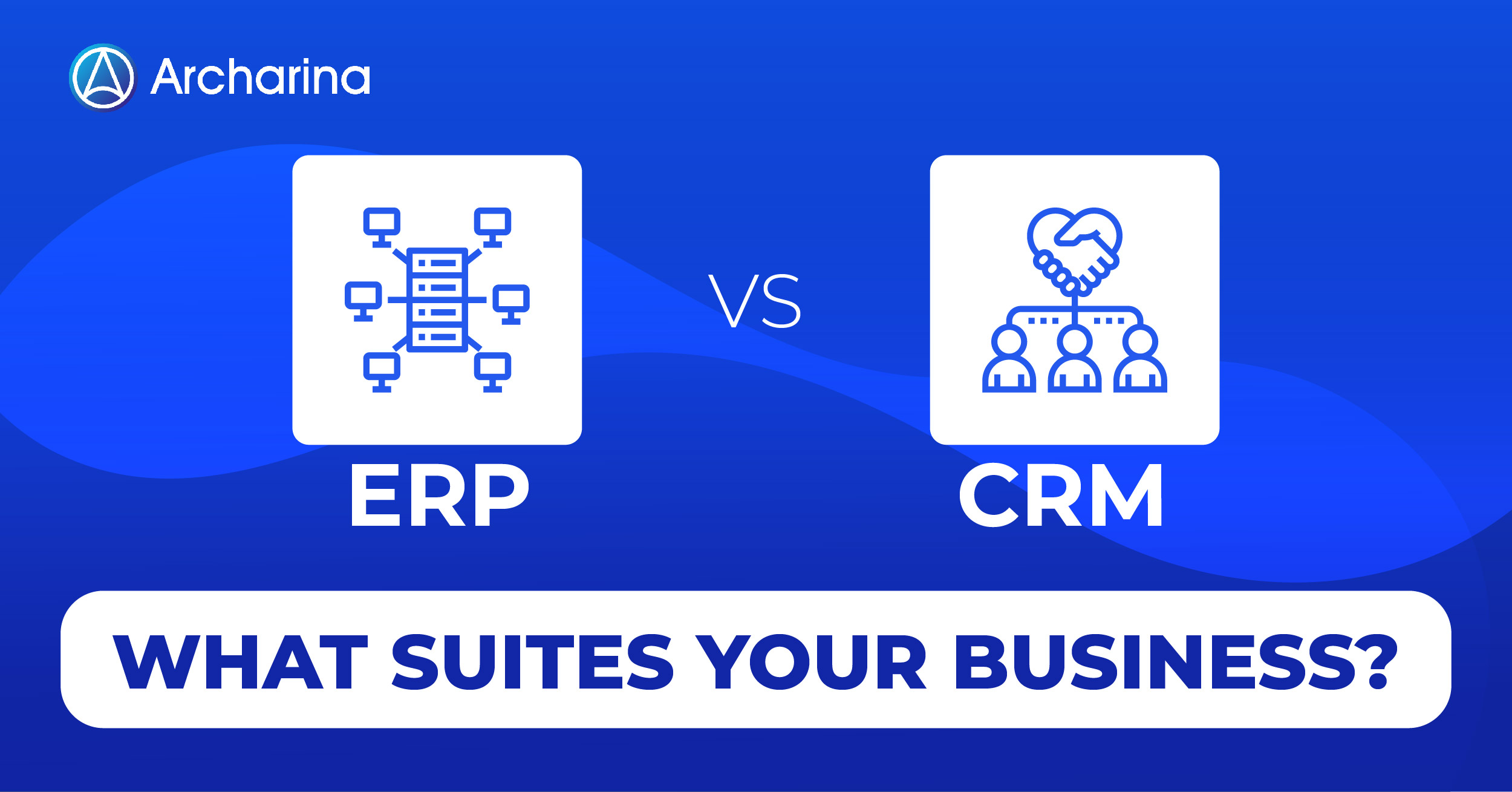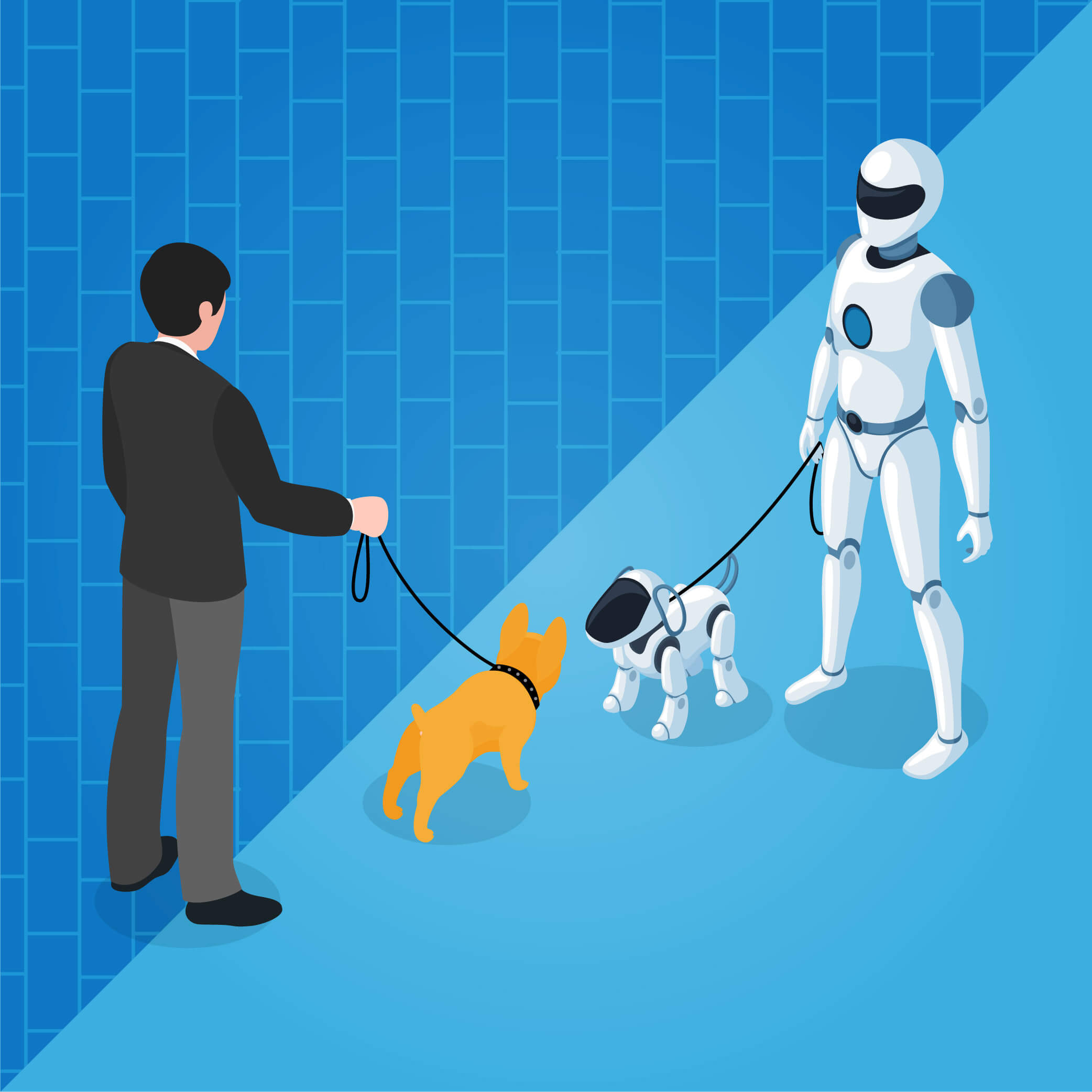CRM vs ERP: What Suites Your Business?
Both Customer Relationship Management (CRM) and Enterprise Resource Planning (ERP) may appear identical. However, there are several differences. In this article, we'll analyze both ERP and CRM systems and help you determine which will be more suited for your organization. However, let's begin with the basics first. Shall we?
What Is a CRM?
CRM deals with the customer's data and leads the sales efforts of the organization. It's an efficient way to manage the business by reaching out to customers, staying in touch with customers, and examining their prospects to boost sales.
The CRM system monitors the sales and marketing information and data to amplify the efforts and the teamwork. With the given adequate data, CRM can be the unified platform for executing excellent marketing ideas and implementing new campaigns to attract more audiences.
What is ERP?
ERP system allows the organization to collects and reserve the data throughout all departments and brings it to use when needed through an integrated business application. The assistance provided by the ERP handles different aspects of business, including regular day-to-day tasks in various departments like sales, project management, HR, and so on.
The uniqueness of ERP is that it handles various parts of a business. With the efficient approach to data sharing, effective collaboration, and focusing on analytics, ERP boosts the business's productivity in no time.
CRM vs ERP
Organizations are always trying to figure out which system best fits their goals. Exploring these two systems and determining how they can boost your productivity and how they can be implemented in your system are some of the questions you will need to answer before choosing your ideal system.
For example, if you look to implement a CRM solution for your organization, it will add much-needed power to the sales capabilities and increase conversions. On the other hand, the ERP system is an extensive application that expands these capabilities throughout your organization
Which System is more suited for me?
Only your requirements can identify which system can be best for your business. But, choosing either one of them, for the time being, is a good idea only if there are options for future integrations. It's better to make full use of the demo or the trial period available to determine the best fit before making your choice.
The difference between ERP and CRM is insignificant. The duo ultimately focuses on improving the process the way your data is utilized. CRM mainly prioritizes and undertakes the front-end activities of the enterprise, like sales and marketing efforts. In contrast, ERP specifically undertakes the back-end activities like management of supply chain, planning a project, and activities relating to accounting.
To put it simply, ERP for the organization minimizes the operational cost while CRM improvises the overall sales capabilities and focuses on making more money.
Other factors to look upon when deciding the best system for your business:
If you intend to look for a more inclusive system coming in handy for the whole organization, ERP is the best pick. If the major objective of your organization is to enlarge your sales and boost the capacity of your sales team, CRM is the best available tool.
Your organization must understand that ERP is more challenging to implement than CRM. If you look to start with a simple but efficient tool, CRM is more suited. But make sure the CRM you choose now can integrate with ERP in the future when you need it. Besides, it's necessary to understand your budget and invest in a suitable system accordingly.
Is it possible to use both?
As now you have a better understanding of where ERP and CRM are similar and different from one another, it’s clear that CRM and ERP as two separate solutions without integration will lead to overlapping and inefficiencies. The major focus here should be integrating them to help you in your business.
ERP and CRM integration with unified storage can eliminate data duplication stored in both systems separately and help instant data access to drive more collaboration. ERP and CRM integrating has been tested by several organizations in the past, proving to be significantly effective.
So it’s better for you to choose an ERP or a CRM solution that integrates with its counterpart. As your business grows, you might outgrow your existing system. It’s always better to look for scalability options when choosing software for your organization.



